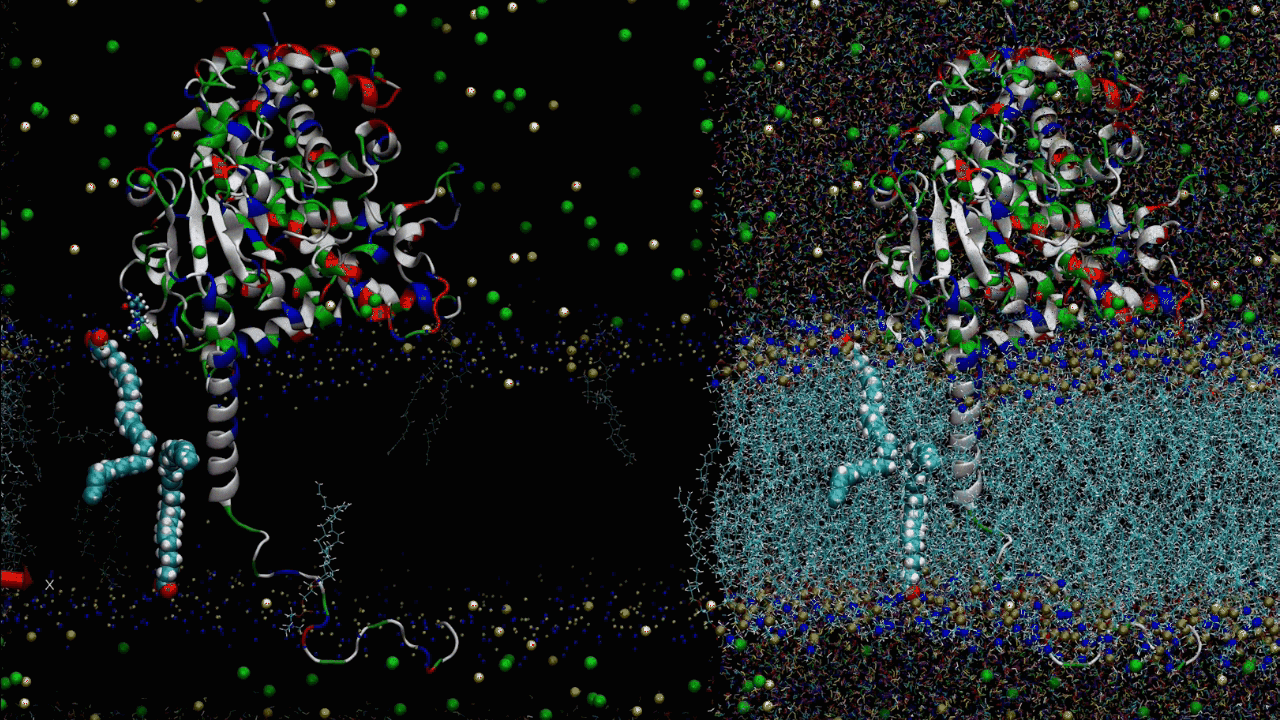Departmental Focus Areas
Undergraduate Programs
- B.S. in Chemistry for Professional Chemists
The Department of Chemistry is approved by the American Chemical Society. Chemistry majors may pursue the Bachelor of Science for professional chemists that leads to American Chemical Society certification and prepares students for graduate studies in traditional chemical fields. Students interested in professional schools, chemistry-associated industries, or secondary education may pursue this Bachelor of Science degree for other technical careers.
- B.S. in Forensic Chemistry
The Department also offers the B.S. in Forensic Chemistry and this degree is the first of its kind in Texas. This growing field of chemistry is exciting and there is an increasing demand for chemists in this area. The advent of instrumental methods of forensic analyses has allowed for the detection of vanishingly small amounts of blood, metals, tissue, DNA, etc. These advances have revolutionized forensic crime solving and increased the need for trained forensic chemists. Successful completion of this degree program allows the student to apply for the program leading to the M.S. in Forensic Science, an interdepartmental graduate degree offered jointly in the Departments of Biology, Chemistry and Criminal Justice.
Have any questions about our academic programs? Contact us here.
American Chemical Society Certified Programs
The American Chemical Society (ACS) Approval Program ensures excellence in chemistry education for undergraduate students through approval of chemistry programs. ACS-approved programs offer a broad-based and rigorous chemistry education that gives students intellectual, experimental, and communication skills to become effective scientific professionals. Students graduating that take appropriate coursework earn an ACS-certified degree that documents their extensive knowledge and skills in chemistry.
Our primary ACS-Certified degree is:
You can also take sufficient coursework in chemistry to achieve certification with:
Using our new Advanced Chemistry minor, you can achieve sufficient coursework for certification with:
- BS Forensic Chemistry with minor in Advanced Chemistry
- BS Chemistry with a concentration in Biochemistry and Medicine with a minor in Advanced Chemistry
Be sure to meet with an advisor to ensure your plan meets ACS requirements and your career goals.
Undergraduate Research in Chemistry
The faculty at Sam Houston State University feel that research is an integral part of one's training in chemistry. It is in the research laboratory that students begin to learn how to be a chemist. The research laboratory is where the knowledge acquired in the classroom is utilized to pursue a problem in chemistry. When students work in the research laboratory, they become familiarized with all aspects of chemistry in the pursuit of a single problem. The folding of filter paper, the preparation of standardized solutions, the recrystallization of solids and distillation of liquids, obtaining routine spectra are all techniques that the student will find useful in the goal of solving a chemical problem or exploring new and better ways of doing things. All chemistry majors who complete our program engage in extended chemical research before obtaining their degrees. Often students carry out research during the summer months and are mentored by a faculty member with whom the student works. Student stipends up to $2,500 are available for students carrying out summer research.
The department's analytical instrumentation includes state-of-the-art fluorescence spectrometry, FT-IR spectrometry, gas chromatography with mass selective detection (GC-MS), hydride generation atomic absorption spectrometry, inductively coupled plasma spectrometry, 300 MHz NMR, UV-Vis spectrometry, Raman spectroscopy, and x-ray crystallography, among others. Chemistry faculty are variously involved in the Texas Research Institute for Environmental Studies (TRIES, based at SHSU), where many of these instruments are located in a modern laboratory setting. Undergraduate students get extensive hands-on use of these instruments in their research projects.
Summer research is a time of growth in a student's chemical understanding, a broadening of the knowledge of chemical techniques and methods, and a chance to have fun in an independent laboratory setting. We are very fortunate to be able to provide a significant number of research stipends each summer due to a generous grant from The Robert A. Welch Foundation.
For more information about undergraduate research click here.

